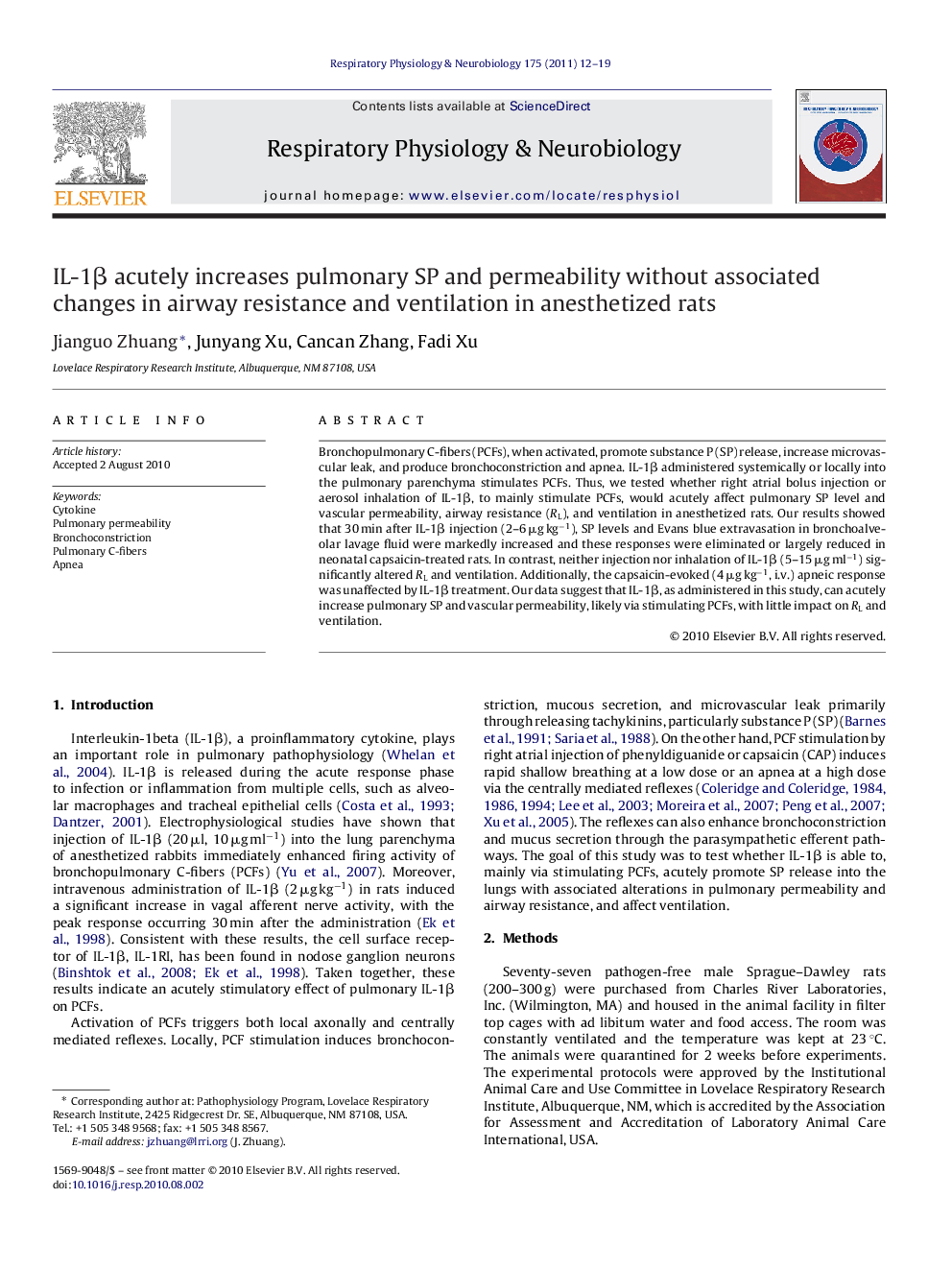| Article ID | Journal | Published Year | Pages | File Type |
|---|---|---|---|---|
| 5926554 | Respiratory Physiology & Neurobiology | 2011 | 8 Pages |
Bronchopulmonary C-fibers (PCFs), when activated, promote substance P (SP) release, increase microvascular leak, and produce bronchoconstriction and apnea. IL-1β administered systemically or locally into the pulmonary parenchyma stimulates PCFs. Thus, we tested whether right atrial bolus injection or aerosol inhalation of IL-1β, to mainly stimulate PCFs, would acutely affect pulmonary SP level and vascular permeability, airway resistance (RL), and ventilation in anesthetized rats. Our results showed that 30 min after IL-1β injection (2-6 μg kgâ1), SP levels and Evans blue extravasation in bronchoalveolar lavage fluid were markedly increased and these responses were eliminated or largely reduced in neonatal capsaicin-treated rats. In contrast, neither injection nor inhalation of IL-1β (5-15 μg mlâ1) significantly altered RL and ventilation. Additionally, the capsaicin-evoked (4 μg kgâ1, i.v.) apneic response was unaffected by IL-1β treatment. Our data suggest that IL-1β, as administered in this study, can acutely increase pulmonary SP and vascular permeability, likely via stimulating PCFs, with little impact on RL and ventilation.
